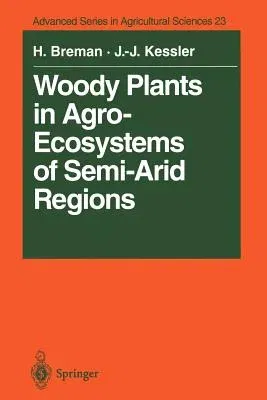Henk Breman
(Author)Woody Plants in Agro-Ecosystems of Semi-Arid Regions: With an Emphasis on the Sahelian Countries (Softcover Reprint of the Original 1st 1995)Paperback - Softcover Reprint of the Original 1st 1995, 30 December 2011

Qty
1
Turbo
Ships in 2 - 3 days
In Stock
Free Delivery
Cash on Delivery
15 Days
Free Returns
Secure Checkout
Part of Series
Advanced Agricultural Sciences
Part of Series
Advanced Series in Agricultural Sciences
Print Length
340 pages
Language
English
Publisher
Springer
Date Published
30 Dec 2011
ISBN-10
364279209X
ISBN-13
9783642792090
Description
Product Details
Authors:
Book Edition:
Softcover Reprint of the Original 1st 1995
Book Format:
Paperback
Country of Origin:
NL
Date Published:
30 December 2011
Dimensions:
23.39 x
15.6 x
1.91 cm
Genre:
Ecology
ISBN-10:
364279209X
ISBN-13:
9783642792090
Language:
English
Location:
Berlin, Heidelberg
Pages:
340
Publisher:
Weight:
503.49 gm

